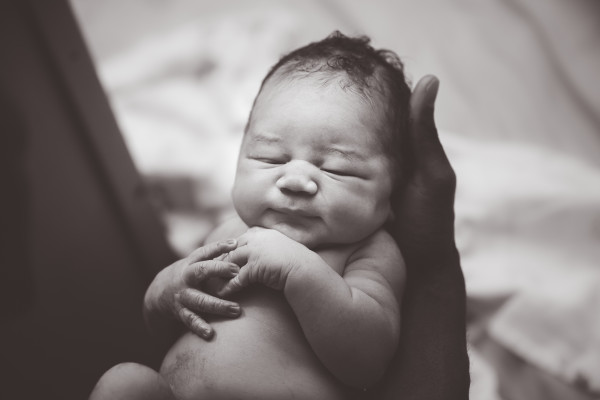
Pregnancy & Postpartum Care
Pregnant women are one group of patients who are particularly highly motivated when it comes to maintaining optimal wellness and finding drug-free solutions to medical problems. In collaboration with the primary birth care provider (OB, midwife, RE, etc), acupuncture is an ideal form of treatment as it offers women a safe, natural and drug-free way to improve a woman’s quality of life, provide relief for a multitude of problems that can arise during the perinatal time and prevent them from becoming serous enough to necessitate medical treatment. In China, texts with sections dedicated to obstetrics date as far back as the Ming dynasty (1368-1644), and since the early 20th century this invaluable traditional resource has been incorporated with Western medicine knowledge in texts devoted specifically to obstetrics. It is only a matter of time before hospital antenatal clinics routinely incorporate acupuncture as a safe and relatively cheap solution to many of the disorders of pregnancy.
Acupuncture can be used in a variety of ways to promote maternal and fetal health through the childbearing year:
1st trimester: Sets the foundation for a healthy pregnancy and ensures proper nutrition, alleviates nausea and vomiting, fatigue, headaches, constipation, and helps to prevent unnecessary miscarriage.
2nd trimester: Helps women adjust to the new demands placed on their bodies by alleviating common conditions such as heartburn, hemorrhoids, varicose veins, gestational diabetes, sleep problems, edema, elevated blood pressure, anemia, UTI’s, anxiety and depression, fatigue, colds/flus, sinusitis, and musculoskeletal pain.
3rd trimester: Prepares the body for an efficient and timely labor. Helps to address sciatica, hip, joint, pubic and back pain, carpal tunnel, thrush and abnormal vaginal discharge, breech and posterior positions, small-for-date babies, pregnancy-induced hypertension, and edema.
Pre-birth ripening treatments: From about week 36 onward, weekly individualized treatment focused on constitutional health with the addition of specific pre-birth ripening points can promote:
- Softening of the cervix
- Relaxation and balanced emotions
- Relaxing of the ligaments that support the uterus
- Optimal positioning of the baby
- Better energy and stamina for labor
- Release of musculo-skeletal tension
- Regulation of systems that support and initiate labor
- Increase in efficient, effective contractions
- A reduction in the desire for medical interventions
In 2006, an observational study showed the following results for women receiving pre-birth acupuncture as described above:
- 31% reduction in use of epidural anesthesia
- 32% reduction in cesarean deliveries
- 43% reduction in inductions for first time moms
- 35% reduction in overall inductions
Labor and Delivery
During labor, acupuncture can play a role in actively reducing the level of medical interventions needed to achieve a successful and healthy birth. Specifically, acupuncture can help to:
- Increase production of labor hormones to initiate contractions
- Relax the mind and body
- Promote proper baby positioning and descent into the pelvis
- Relieve whole body muscle tension and back pain
- Improve energy and reduce fatigue
- Promote cervical effacement (thinning) and dilation
- Reduce nausea
- Support emotional well being and stamina
Jenny collaborates with other specialists in pregnancy care through Birth Point Acupuncture Group in Santa Cruz to provide on-call phone service during the week for questions and to schedule appointments. Acupuncture labor support services may include up to 3 hours of dedicated attendance. For more information, please see our website.
Postpartum
Postpartum care is just as important as prenatal care. The process of delivery and childbirth is extremely hard work; it isn’t called labor for nothing. The effects can often leave the mother’s body deficient, fatigued, and vulnerable as her body has been “opened to the core.” All the while she is beginning the physically and emotionally demanding role of mothering a newborn. Caring for your health is crucial during these weeks and months of recovery and adaptation. In some cases, when complications arise during and after childbirth it becomes even more important to continue postpartum care. This time period is an opportunity to literally ‘rebuild’ your body and constitutional health.
The healing, replenishing, strengthening, and nurturing benefits of Traditional Chinese Medicine can help ensure that you are at your optimal level of health at such an important time in your life. A particular practice called “mother-roasting” is a postpartum tool used by many cultures around the world to warm and care for the health of the mother and newborn. Traditionally, fire was used to directly or indirectly warm a mother’s lower back and abdomen immediately following childbirth. In TCM, a special herb called “Moxa,” or Chinese Mugwort (Folium Artemisiae), is burned slowly near the surface of the skin to gently warm this area of the body called “Ming Men,” or “Life Gate” after delivery. This practice relaxes and soothes the mother, reduces after-pains and blood loss, firms up the abdomen and helps the uterus to shrink, promotes lactation, increases strength and confidence, and builds immunity. Women can benefit from this treatment anytime in the first year postpartum, but generally the earlier and more frequent the treatments are in the immediate postpartum, the better.
Acupuncture safely and effectively helps to restore balance, prevent complications, decrease stress, promote healthy lactation, and can benefit the following conditions after childbirth:
Breast Feeding Problems
- Insufficient Lactation
- Blocked Ducts
- Mastitis
- Cracked or Sore Nipples
Postpartum Discomfort
- Back Pain
- Body and Joint Pain
- Abdominal / Pelvic Soreness
- Headaches
- Recovery from Cesarean Section
Postoperative Healing
- Baby Blues
- Postpartum Depression
- Uterine Prolapse
- Persistent Lochiorrhea (continues for more than 2-3 weeks)
- Urinary Incontinence & Retention
- Bowel Irregularities, Hemorrhoids
- Fatigue & Exhaustion
- Insomnia
- Hormonal Imbalance
“The moment a child is born, the mother is also born. She never existed before. The woman existed, but the mother, never. A mother is something absolutely new.” Rajneesh

